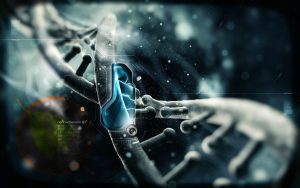Jon Rueda Etxebarria, miembro e investigador de FiloLab, ha publicado recientemente un Correspondance en la prestigiosa revista Nature (Nature Genetics), titulado «Problems with dystopian representations in genetic futurism» (https://doi.org/10.1038/s41588-023-01416-9). En su texto, Rueda debate con el artículo «GATTACA is still pertinent 25 years later» de Dov Greenbaum y Mark Gerstein (https://doi.org/10.1038/s41588-022-01242-5) en torno a las representaciones distópicas del futuro que involucran la tecnología genética. A continuación reproducimos parte del texto de Jon Rueda.
«What impact can genetic advances have on the future of humanity? In science fiction, when it comes to answering that question, one common tendency is to portray a bleak image of our genetic future1. Dystopias — that is, scenarios that present societies that are extremely undesirable by our current standards — constitute a dominant sub-specific genre. Among dystopian films, GATTACA is probably the most popular movie in terms of its warning of the misguided advance of genetic technologies. GATTACA depicts a two-tier society where inequalities based on prenatal genetic enhancement and the socially determinant role of genetic information are the norm.
In a recent comment, Dov Greenbaum and Mark Gerstein have interestingly defended the relevance of GATTACA 25 years after its release2. According to these authors, one of the virtues of this film is that it is based on feasible technologies. The prescient aura of this film arises from showing where current emerging technologies (such as next-generation genome sequencing, genome-wide association studies or CRISPR–C as gene editing) could eventually lead us. Greenbaum and Gerstein, moreover, rightly point out that “GATTACA and pop culture stories like it are, for better or for worse, some of the main sources of society’s conventional science wisdom”.
Puedes seguir leyendo el artículo completo a través de este link.

